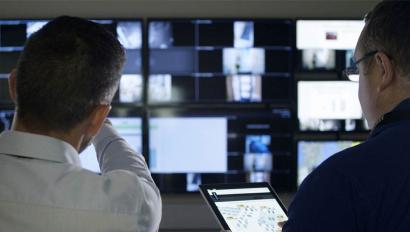The Significance of Monitoring Staff Hours: Employee Time Tracking

Why it’s important to monitor staff hours
Monitoring staff hours is important for businesses in Ireland for a number of reasons. Here are some of the main reasons why:
- Employment Law Compliance: The Irish Working Time Directive (WTD) sets out a number of rules on working hours, including maximum weekly working hours, rest breaks, and daily and weekly rest periods. Employers in Ireland are required to comply with the WTD, and monitoring staff hours is one way to do this.
- Ensure employee health and Safety: Long working hours can lead to a number of health problems, including fatigue, stress, and burnout. Monitoring staff hours can help employers to identify employees who are working excessive hours and take steps to protect their health and safety.
- To improve productivity: Employees who are well-rested and not overworked are more productive. Monitoring staff hours can help employers to identify areas where employees are struggling and make changes to improve their productivity.
- To identify areas for improvement: Monitoring staff hours can help employers to identify areas where their business processes are inefficient. This information can then be used to make improvements that save time and money.
- To make better decisions: By having accurate data on staff hours, employers can make better decisions about things like staffing levels, scheduling, and budgeting.

Employers are required to record working time
Employers in Ireland are required to keep records of their employees' working hours. This is in accordance with the Organisation of Working Time Act 1997, which sets out a number of rules on working hours, including maximum weekly working hours, rest breaks, and daily and weekly rest periods. Here are some of the important things to note:
- Failure to keep records of working time is a criminal offence. Employers who are found guilty of this offence can be fined up to €1,900.
- If a complaint is made against an employer, an enforcement officer from the Workplace Relations Commission (WRC) may investigate the complaint. The WRC will expect to see the employer's working time records as part of their investigation.
- If an employer is unable to produce their working time records, or if the records are incomplete or inaccurate, they may be found guilty of an offence. They could also be ordered to pay the employee compensation for any losses they have suffered.
Therefore, it is essential for employers in Ireland to keep accurate records of their employees' working hours. This will help to protect them from prosecution and ensure that they are complying with the law.
How do you record employer working time?
Clocking in/out of work using traditional punch cards and machines is a well understood method of recording employee attendance and working hours, but it’s a dated, unreliable approach that provides minimal information. What’s more, these systems are usually restricted to the shopfloor, infrequently used in other areas of businesses and in different types of businesses, e.g. office-based ones. This means employers are only gaining insight into one part of their business and that insight is limited.
Modern Time and Attendance systems offer a more comprehensive and accurate way to record employee working time. These systems can track employee start and end times, breaks, overtime, and location. They can also be used to generate reports on employee productivity, attendance, and overtime.
If you have any specific questions about recording working time, feel free to email our Time & Attendance expert at [email protected]
Time and Attendance systems are a valuable tool for employers who want to comply with employment law, protect employee health and safety, improve productivity, and make better business decisions.
What are the advantages to implementing a time and attendance tracking system?
Time and attendance tracking systems are becoming increasingly popular among businesses of all sizes. These systems offer a number of advantages over traditional methods of recording employee working time, such as punch cards and time clocks.
One of the biggest advantages of time and attendance tracking systems is that they provide an accurate record of employee working time. This information can be used to ensure that employees are paid correctly for their hours worked and that they are not working excessive hours. Time and attendance tracking systems can also be used to generate reports on employee productivity and attendance. This information can be used to identify areas where employees are struggling and make changes to improve their productivity.
Another advantage of time and attendance tracking systems is that they can help to improve compliance with employment law. These systems can be used to track employee hours and breaks to ensure that they are in compliance with the law. Time and attendance tracking systems can also be used to generate reports on overtime hours worked. This information can be used to ensure that employees are not working excessive overtime hours.
Finally, time and attendance tracking systems can help to improve employee morale. Employees appreciate the convenience of being able to clock in and out of work with a swipe of their badge or a tap of their finger. They also appreciate the fact that their hours are being tracked accurately and that they are being paid correctly for their work.
Here are some additional advantages of implementing a time and attendance tracking system:
- Reduced administrative burden: Time and attendance tracking systems can automate the process of recording employee working time, which can save businesses a significant amount of time and money.
- Improved workforce management: Time and attendance tracking systems can provide businesses with data that can be used to improve workforce management. For example, businesses can use this data to optimize scheduling, identify areas where there are staffing shortages, and track employee performance.
- Increased security: Time and attendance tracking systems can help to improve security by tracking employee access to sensitive areas and equipment.
- Compliance with regulations: Time and attendance tracking systems can help businesses to comply with a variety of regulations, such as those governing labor laws, health and safety, and financial reporting.
Time and attendance tracking systems can also be used to generate reports on employee productivity and attendance. This information can be used to identify areas where employees are struggling and make changes to improve their productivity.
If you are looking for a way to improve your business, then you should consider implementing a Time and Attendance tracking system. These systems offer a number of advantages that can help businesses to save time and money, improve productivity, and increase compliance with regulations.

How to choose the right Time and Attendance System?
Time & Attendance systems are available for all sizes of business, from our Basic package which is the perfect fit for businesses of up to 50 employees, due to its flexible costs and rental possibility. Our Advanced package is a solution which is designed for businesses of 50+ employees and more.
Our Time and Attendance expert is on standby to help you find the right solution for your business. Call us at +353 86 136 2770 or email at [email protected].
If you would like to get a Free Demo of our Time and Attendance solution, click the button below and fill out the form. Out Time and Attendance expert will contact you in a short time span.























